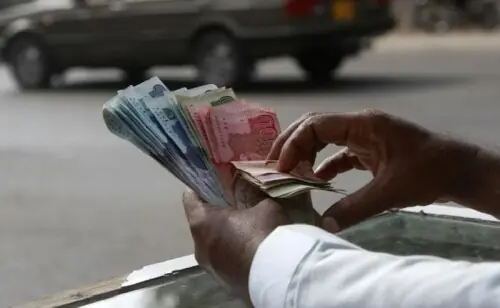ISLAMABAD: Former Pakistani diplomats on Wednesday expressed concern that US engagement with Pakistan would remain limited under President Donald Trump’s second term, citing Washington’s policies toward India and China and strategic divergences that continue to strain relations between the two countries.
Speaking at a roundtable organised by the Center for International Strategic Studies (CISS), titled Trump 2.0: Implications for Pakistan, prominent former diplomats discussed the shifting dynamics of US-Pakistan relations in the context of growing India-US cooperation and the intensifying US-China rivalry, according to a readout of the discussion provided by the think-tank.
The panel included former foreign minister Jalil Abbas Jilani; Ashraf Jehangir Qazi, who has represented Pakistan in the US, India, and China; Masood Khalid, a former envoy to China; and Dr Qamar Cheema, executive director of the Sanober Institute.
The experts criticised Washington for viewing Islamabad primarily through the lens of its ties with India and China, rather than recognising its independent strategic significance.
Ex-diplomats criticise Washington for viewing Islamabad primarily through lens of its ties with India and China
Pakistan’s strategic location, makes it a key player in regional and global geopolitics, the readout noted, adding that maintaining goodwill between Washington and Islamabad is essential for future engagement. However, experts feared that a lack of shared strategic priorities continues to impede the development of a substantial, long-term partnership between the erstwhile allies.
The panelists underscored that Pakistan has distinct relationships with both the US and China, each shaped by unique dynamics and priorities. They lamented Washington’s tendency to shape its approach to Pakistan based on its ties with China and India, arguing that this perspective disregards Pakistan’s independent value in the global arena.
The discussion also touched on US support for India as a counterbalance to China in the Indo-Pacific. The diplomats highlighted how New Delhi has strategically leveraged the perceived threat from China to strengthen its position, securing advanced Western military equipment and forging closer ties with Washington.
They pointed to India’s inclusion in the Quad alliance and its participation in foundational agreements such as COMCASA, LEMOA, and BECA, which have bolstered its strategic partnership with the US.
The panel also criticised continued sanctions against Pakistan despite its adherence to stringent nuclear safety and security standards, viewing these measures as discriminatory. They concluded that while the US continues to deepen its strategic alignment with India, meaningful engagement with Pakistan under Trump’s administration is unlikely to progress without a shift in Washington’s regional policies.
Published in Dawn, January 23rd, 2025



































